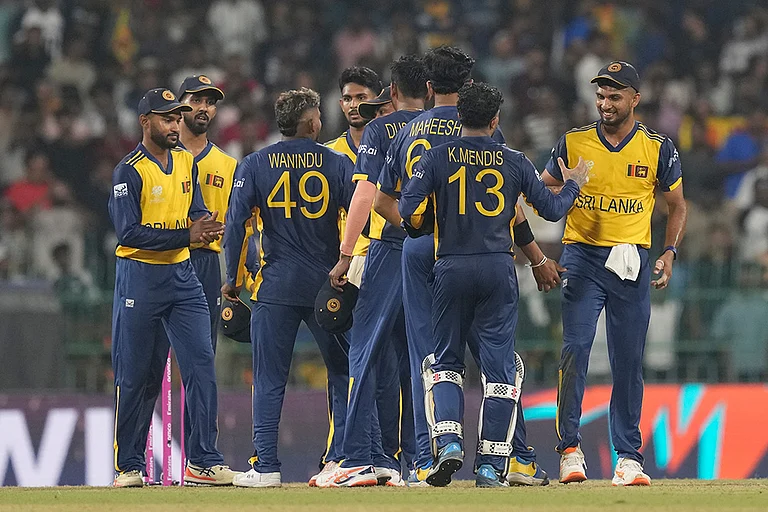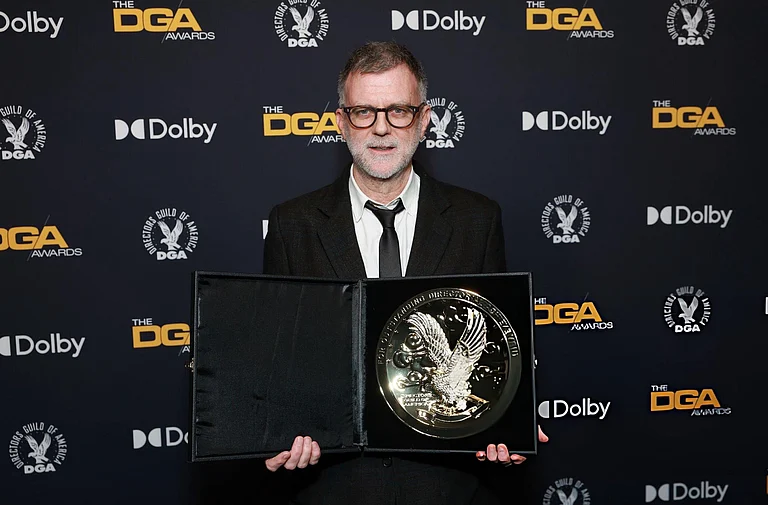The United Front was represented by the Union Industries Minister Murasoli Maran, the BJP by its former finance minister Jaswant Singh and the Congress by former CWC member Rajesh Pilot. The UF's incumbency factor gave it additional advantage. Prime Minister I.K. Gujral, Finance Minister P. Chidambaram and the chief ministers of Tamil Nadu and Karnataka—M.Karunanidhi and J.H. Patel—also elaborated on the UF's economic policy.
Gujral said reform measures for many areas had been drawn up but could not be carried out due to want of time, like insurance, aviation, forex management and the Companies Bill. "But the political consensus will steer the economy towards further reform, irrespective of the composition of the government. This is obvious from what is happening in the states, where reforms are the road ahead," observed he.
Maran was quite radical, saying that he would like to give a painless death to his own ministry as it has no role to play in a licence-free, FIPB-free and bureaucrats-free industrial climate. "What is needed is a coordination ministry. I want to make FIPB irrelevant. Now there are only nine industries on the licensing list and they should go and they will go."
Not to be left behind, Jaswant Singh declared that the BIFR should go: "Companies become sick and go to BIFR and become even sicker and they sink without a trace. We should identify the companies before they become sick and save them rather than performing autopsy later with idea of reviving the corpse," observed the man who has the record of being the finance minister for the shortest duration in Independence India. Pilot jumped in with: "We started all these things. We started debureaucratisation; we started the lib-eralisation process and we have maintained all through that it is irreversible and I am happy to see my friends from other parties endorsing our economic plank."
In a strange convergence, it was the UF ministers who took potshots at the Indian Left while the Left's bitter enemies—the BJP and the Congress—did not even touch upon the red-flagged economic agendas. Said Maran: "Time has come for us to realise that attracting foreign capital does not mean that we are losing our sovereignty. FDI so far accounts for only 2.4 per cent of total investment and even if it touches 10 per cent, nothing will happen to our economic freedom." Said he: "I do not make fake distinctions between potato chips and computer chips. We accept any chips that provide jobs and help our economy. The biggest French fries project was approved not for other states but for West Bengal."
Maran, however, also hinted that he is for a level playing field. He quoted numerous examples from the European and the American systems and declared that "protectionism is one of the key rules in the game of free market forces." But when his speech began sounding almost like a Bombay Club declaration, he changed tack and said that Indian consumers too need a club to get their decent due share. "In the name of protectionism, we cannot penalise the common consumer who has a right to a quality product at the right price dictated by supply-demand logic and not by any cartel.While we promise adequate anti-dumping and countervailing duties to ensure the level playing field, it shouldn't be taken to the absurd extent of denying consumers good products."
Maran conceded that TNCs were evil with deep pockets and who would pack up and translocate their plant elsewhere depending purely on profitability. "But we must realise that they are necessary evils as they bring in investment, technology, management systems and cutting-edge understanding of the market forces."
Singh began his speech from a high moral ground. "To talk about economic agenda as if it is a satellite orbiting the nation in isolation is wrong. Economic agenda is a part of the larger moral universe and delinking it from the larger moral universe will render it soulless and inhuman in its objectives," he said. He then went on to endorse everything Maran had said but raised a pertinent question: "Maran and his party have a clear-cut economic policy. But on what account can we take this as that of the 14-party coalition?"
While Maran and Singh spoke about the need to reach out to the rural poor, Singh alone declared that agricultural subsidies would continue if the BJP is voted to power. Maran and Pilot did not contradict him, but they refrained from touching this touchy topic on election eve.
Pilot had the easiest job. Apart from endorsing the views of Maran and Singh, he managed to successfully remind the audience that this entire process was started by his party seven years ago. All the three accepted that there would no foreign participation in any of the defence or strategic businesses, that there is an urgent need to modify the existing rules of the BIFR and the restructuring bill which is now before the standing committee would be passed in the 12th Lok Sabha, that Indian bureaucracy is bad and non-responsive and solely responsible for all our ills, and that asking politicians awkward questions during election time would not elicit any answers. "If you ask such awkward questions during the election, my only answer is silence," said Singh. "I totally share his opinion," said Maran and Pilot coyly conceded the same.


























